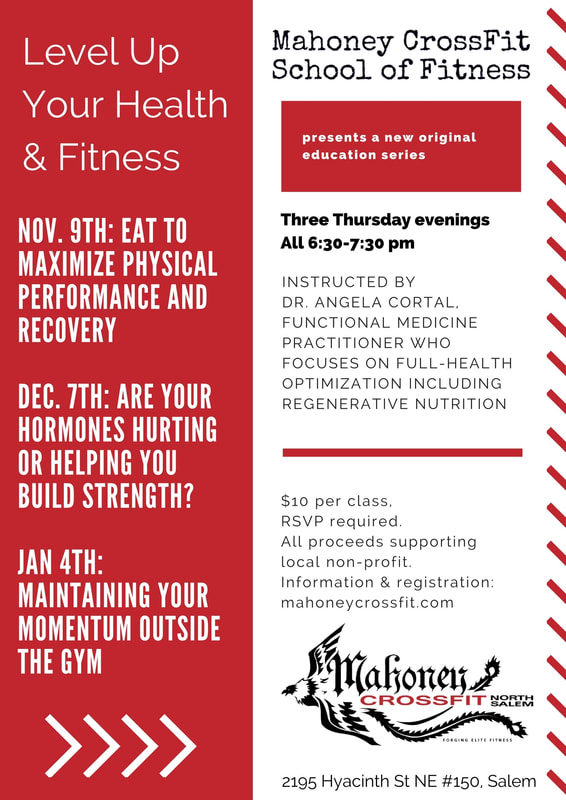|
Sometimes we make assumptions that everyone thinks like us, right?
That what we "know for sure" everyone else does, right? But then, through various avenues, we are confronted with the stark realization that others "know for sure" the exact opposite we do, and are equally confident in their position. Enter, calorie counting. Or in the realm of weight loss, the adage "calories in, calories out." Now, full disclosure, I have never been a fan of calorie counting- for any outcome. I guess I've always preferred to take a more broad look at food sources, ie are they whole foods? Are they mostly processed? Instead of the micro-focus calorie counting would entail to be accurate. Ok, so now biases aside, what I have seen clinically, too many times to count, is that the various calorie counting doctrines that my patients have described over the years invariably makes them neurotic, hungry with little to no weight loss to show for it. At this juncture I would like to share a longish but extremely important passage from Good Calories, Bad Calories by Gary Taubes: " In October 1917, Francis Benedict, director of the Carnegie Institution of Washington's Nutrition Laboratory (located, as it happens, in Boston), put twelve young men on diets of roughly fourteen hundred to twenty-one hundred calories a day with the intention of lowering their body weights by 10 percent in a month. Their diets would then be adjusted as necessary to maintain their reduced weights for another two months, while Benedict and his colleagues meticulously recorded their psychological and physiological responses. A second squad of twelve men was studied as a comparison and then they were put on similar calorie-restricted diets. The results were published a year later in a seven-hundred-page report entitled Human Vitality and Efficiency Under Prolonged Restricted Diet. Benedict hoped to establish whether humans could adjust to this lower nutritional level and thrive. His subjects lost the expected weight, but they complained constantly of hunger- "a continuous gnawing sensation in the stomach," as described by the Carnegie report- and of being cold tot he extent that several found it "almost impossible to keep warm, even with an excessive amount of clothing." They also experiences a 30-percent decrease in metabolism. Indeed, Benedict's subjects reduced their energy expenditure so dramatically that if they consumed more than twenty-one hundred calories a day- a third to a half less than they had been eating prior to the experiment- they would begin to regain the weight they had lost. The men also experienced significant decreased in blood pressure and pulse rate; they suffered from anemia, the inability to concentrate, and marked weakness during physical activity. They also experienced "a decrease in sexual interest and expression, which, according to some of the men, reached the point of obliteration." That these phenomena were caused by the diet itself rather than the subsequent weight loss was demonstrated by the experience of the second squad of men, who manifested, according to the Carnegie report, "the whole picture... with striking clearness: after only a few days of dieting. "One general feature of the post-experimental history," the Carnegie researchers reported, "is the excess eating immediately indulged in by the men." Despite repeated cautions about the dangers of overindulgence after such a strict diet, the men "almost invariably over-ate." As the Carnegie report put it, "the circumstances militated against" any acquisition of "new dietetic habits." In particular the cravings for "sweets and accessory foods of all kinds,"- i.e., snacks- were now free to be indulged, and so they were. Perhaps for this reason, Benedtict's young subjects managed to regain all the lost weight and body fat in less than two weeks. Within another three weeks, they had gained, on average, eight pounds more, and came out of this exercise in calorie restriction considerably heavier than they went in. " So, if you bore with me and read that passage, you will see that: 1) Calorie restriction causes crazy-making hunger 2) Fat/pounds can be lost during this process but return and are exceeded when the diet is stopped (the well known, yo-yo diet effect) 3) Calorie restriction causes all sorts of metabolic disease (the many unwanted symptoms arising) 4) Is overall ineffective and tortuous These results were not only found in this study, but repeatedly over the decades to come. So we have known for 100 years, and have proven time and time again, that calorie restriction for weight loss is ineffective and harmful. So why do so many conventionally-trained doctors, nutritionists and personal trainers continue to recommend this? I can only presume it is because they are parroting their trainings' nutrition education without applying their own critical thinking skills. So if under-eating, calorie counting and "points-based systems" (another gripe for another day) aren't working for you, let me show you how to eat and feel full and satisfied while improving your metabolism, weight loss included.
0 Comments
I am excited to announce that I will be instructing an educational series at Mahoney Crossfit School of Fitness (in Salem) the next few months.
Each monthly talk will emphasize a different area of health as it relates to physical fitness, stamina, strength building and recovery. The first talk starts in just 3 weeks, so sign up if you are in the Keizer/Salem area and interested in these topics. Each talk is on a Thursday night, from 6:30-7:30 pm. Below are the full details, and you can register at the Mahoney website. I am very glad to be sharing with you that I will be one of only 6 professional track presenters for NUNM's 5th Annual Food as Medicine Symposium.
My presentation will be on Nutritional Interventions for PCOS, a topic near and dear to my heart. Full conference details here. |
Archives
June 2024
Categories
All
|
about the doc |
patient infocontact |
|
Privacy Policy
© Copyright 2011-2024, Dr. Angela Cortal ND LLC website content is for educational purposes only and is no substitute for medical advice (see the Terms of Use Agreement for this site), you must establish a doctor-patient relationship to receive that! |



